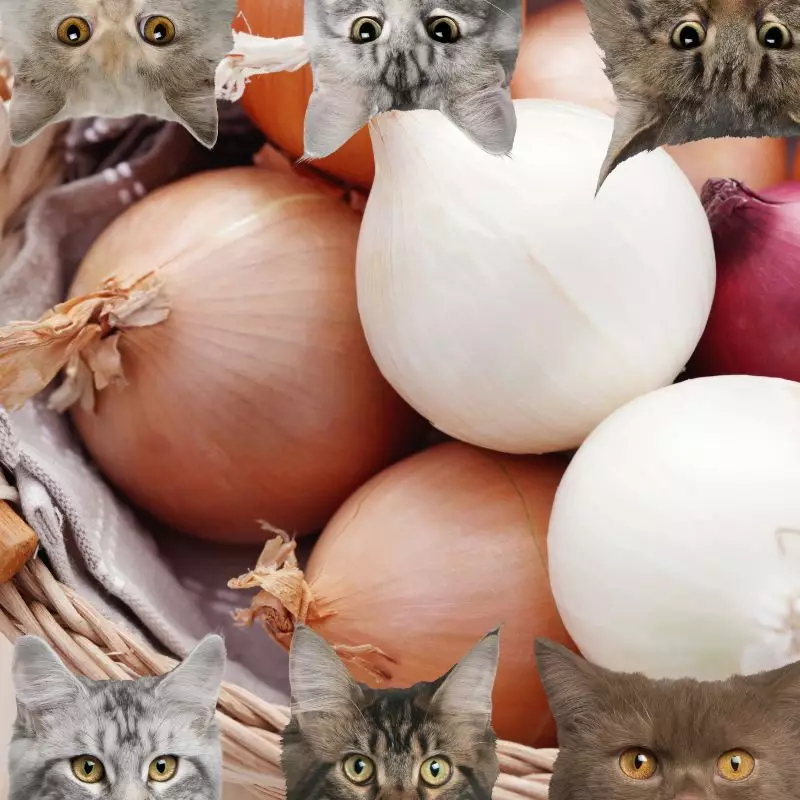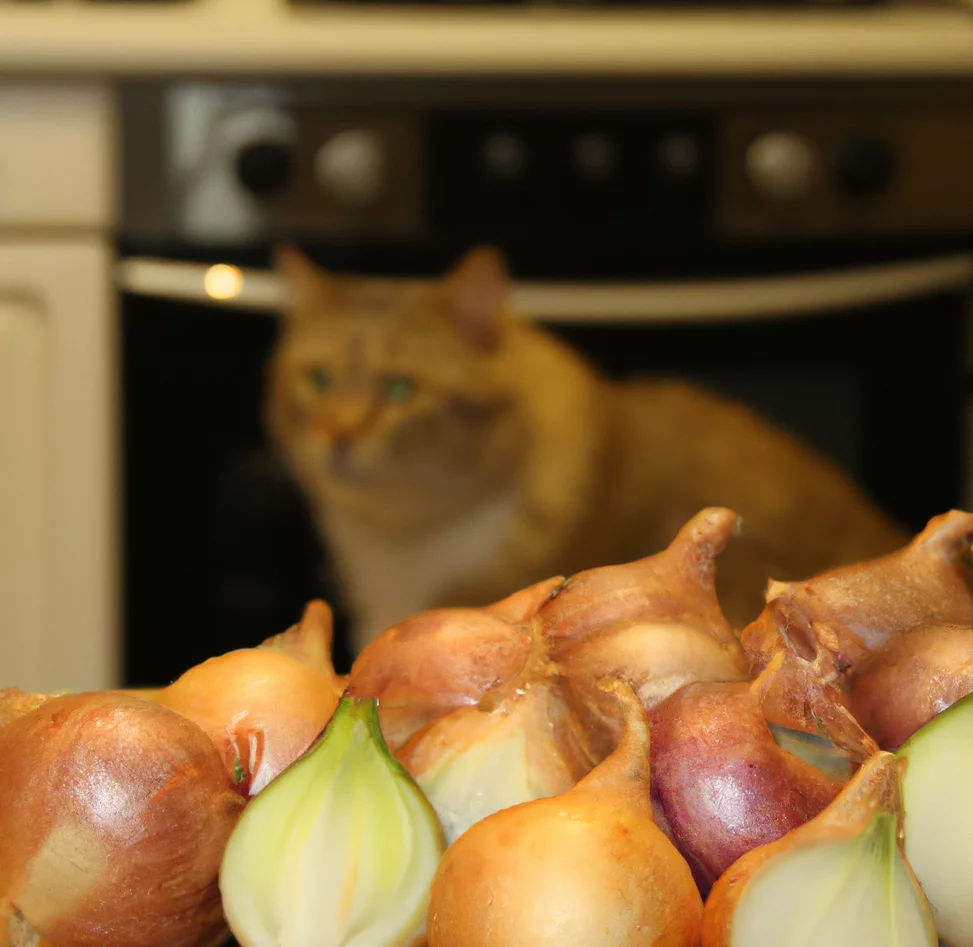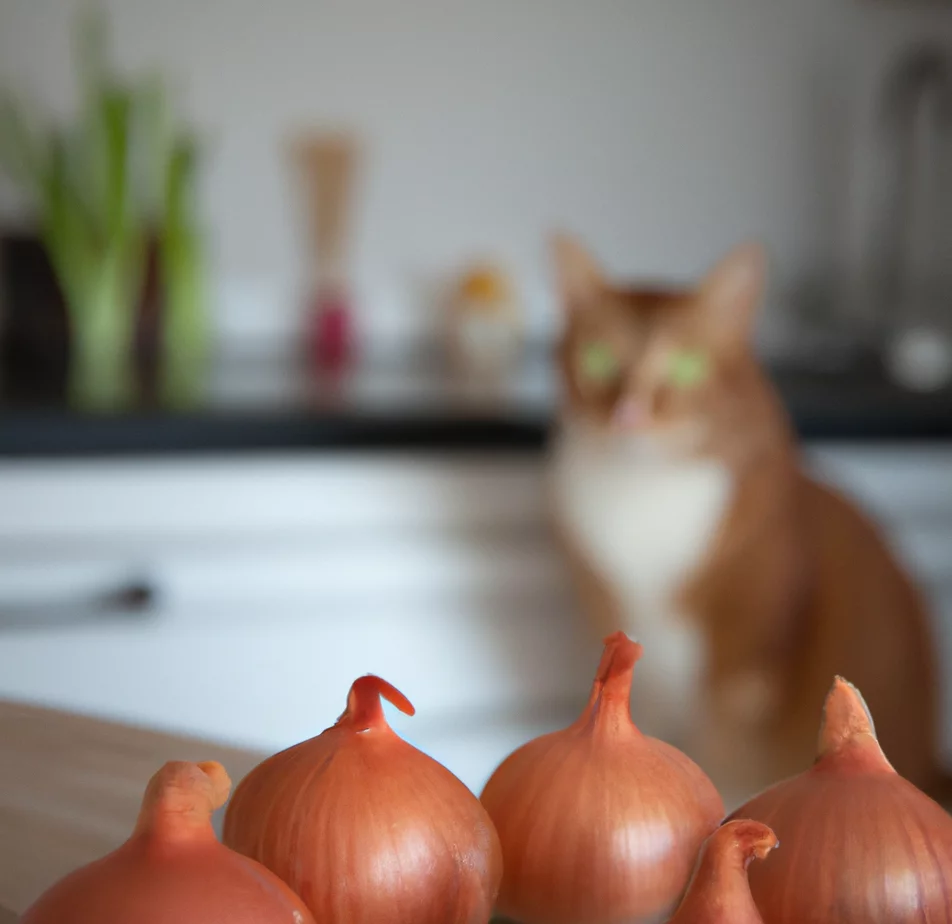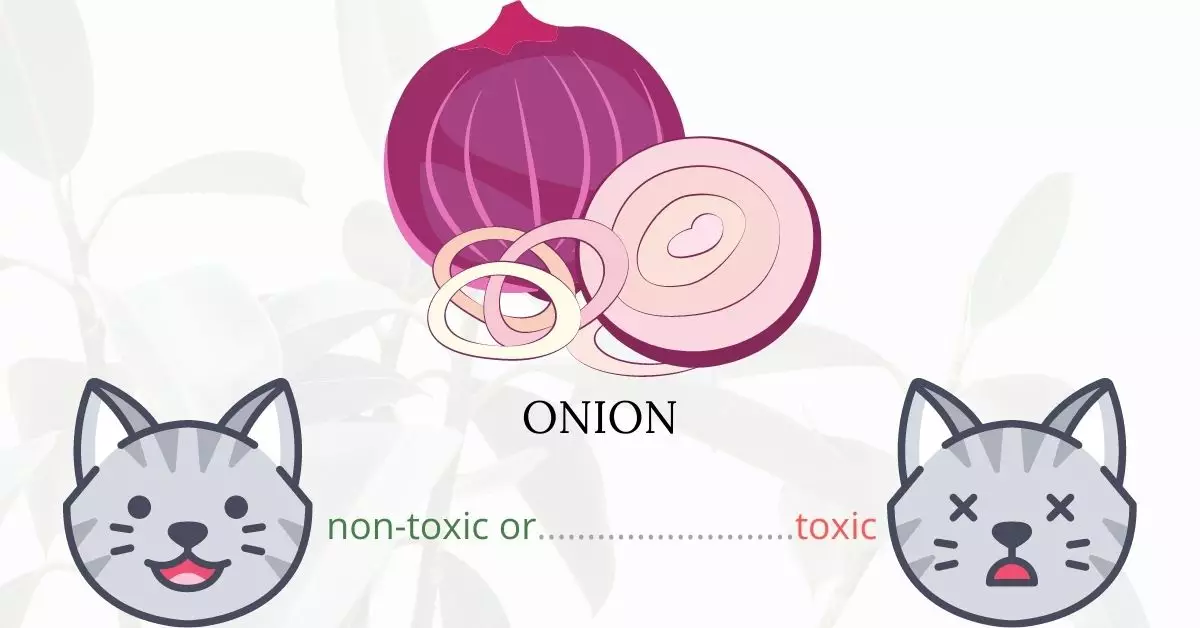Yes, onions are toxic to cats. When a cat consumes more than one gram per five pounds of body weight, the onion can pose a significant health risk. Even more alarming, onion powder can be especially hazardous, with the potential to be even more potent than fresh onions. The primary toxic component in onions is an oxidant known as n-propyl disulfide.
Cats inherently have a heightened sensitivity to red blood cell oxidation, mainly because their cells possess a larger surface area that allows oxidizing agents to easily bind. Once n-propyl disulfide is ingested and makes its way into the bloodstream, it clings to the red blood cell. When the body struggles to remove this harmful substance, it resorts to destroying the affected cells. This process leads to the breakdown of the red blood cells, a condition termed hemolysis.
This article was crafted in close collaboration with a team of experienced DVMs (doctors of veterinary medicine). Their invaluable insights and expertise have ensured that the information presented here is both accurate and current, particularly concerning the potential risks onions pose to cats. Furthermore, to validate our findings, we also sourced information from high-authority websites like ASPCA and PetMD. Through such thorough research, we aim to provide readers with reliable information about the effects of various plants on our feline friends.
Clinical Signs of Onion Poisoning in Cats

Onion poisoning in cats is the result of their red blood cells’ hypersensitive reaction to the oxidant found in both fresh and dried onions. Each symptom can be traced back to the harmful effects of onion ingestion:
- Contact dermatitis: Direct skin contact with onions can cause inflammation or irritation on a cat’s skin, resulting in redness and itchiness.
- Collapse: A severe drop in red blood cell count can lead to a weakened state, causing the cat to collapse.
- Diarrhea: The digestive system’s response to the harmful compounds in onions can result in diarrhea.
- Dyspnea: Shortness of breath or difficulty breathing is caused by the decreased oxygen-carrying capacity of the damaged red blood cells.
- Increased heart rate: The heart may try to compensate for the reduced oxygen availability by beating faster.
- Hematuria (blood in the urine): Damaged red blood cells can release their contents into the bloodstream, which might then get filtered by the kidneys and appear in the urine.
- Hemolytic anemia: This is the breakdown of red blood cells, reducing their ability to transport oxygen, leading to symptoms like lethargy and fatigue.
- Liver damage: Toxic compounds from onions can damage the liver as the body attempts to process and neutralize them.
- Lethargy: Reduced red blood cell function and general bodily distress can result in a lack of energy or enthusiasm.
- Panting: A sign of respiratory distress or an attempt to increase oxygen intake due to the compromised state of the blood.
- Pale Gums: Anemia or reduced red blood cell count can cause the gums to appear paler than usual.
- Weakness: A decline in oxygen transport can lead to muscle weakness, making it hard for the cat to move or maintain balance.
- Vomiting: The body’s natural response to try and expel the harmful substances ingested.
Understanding these symptoms and their causes can help cat owners identify and act swiftly should their pet come into contact with or ingest onions.
First Aid and Treatment of Onion Poisoning in Cats

Onion poisoning has no specific cure, hence the illness is mostly managed with supportive care. The feline may be given intravenous fluid therapy as it is used to flush the poison out of the body and gives the body time to stop hemolyzing red blood cells. In most situations, once the toxin has been removed from the cat’s system, the bone marrow will begin producing new, healthy red blood cells to replace the ones that were damaged. In severe cases of blood loss, a blood transfusion may be required to refill the feline’s blood supply.
Recovery from Onion Poisoning in Cats

Although follow-up exams are rarely required, if your cat received a blood transfusion during treatment, the veterinarian may wish to reevaluate him. Depending on the extremities of your cat’s poisoning, improvement of condition may be seen within a few hours or a day after the treatment has been provided.
Prevention of Onion Poisoning in Cats
Avoid feeding your cat food scraps that may contain onions. Store your onions and other products containing onions in a place where your cat cannot access it. Do not leave your food uncovered or unattended as your cat may try to taste it.
If you love plants but have cats at home, check out these lists:





